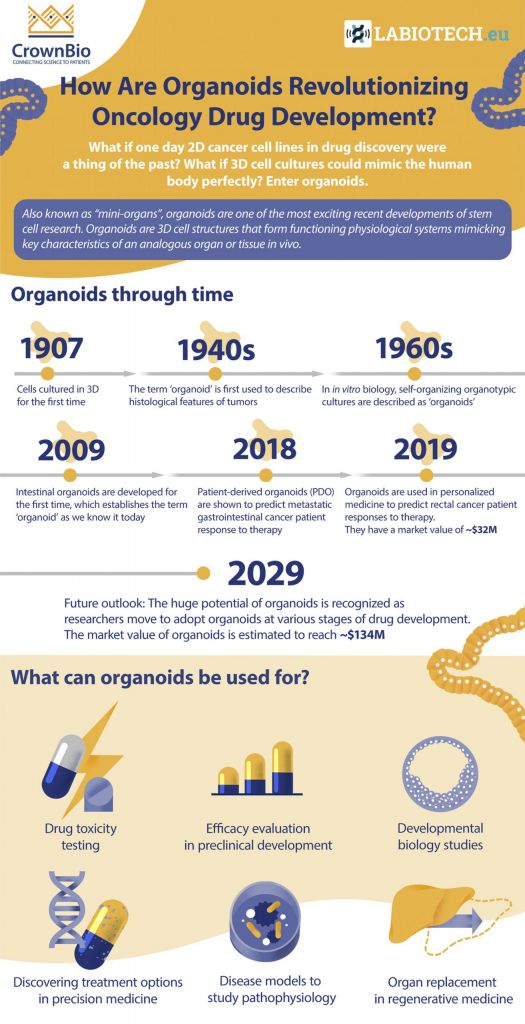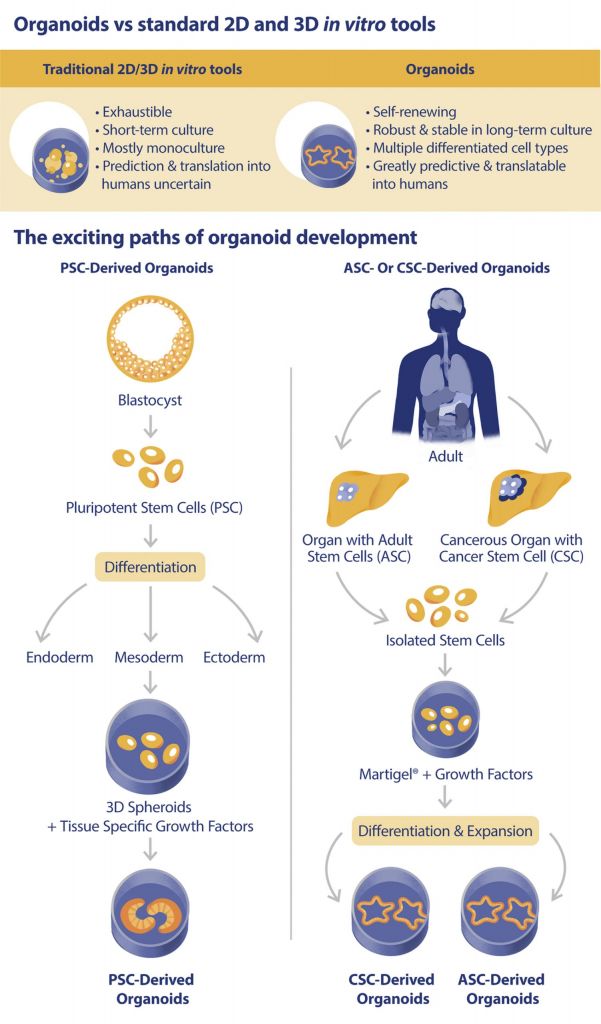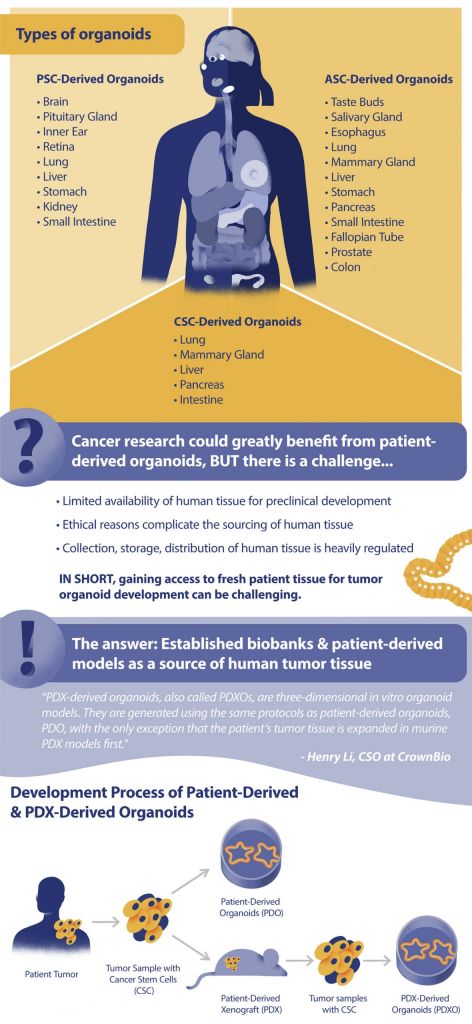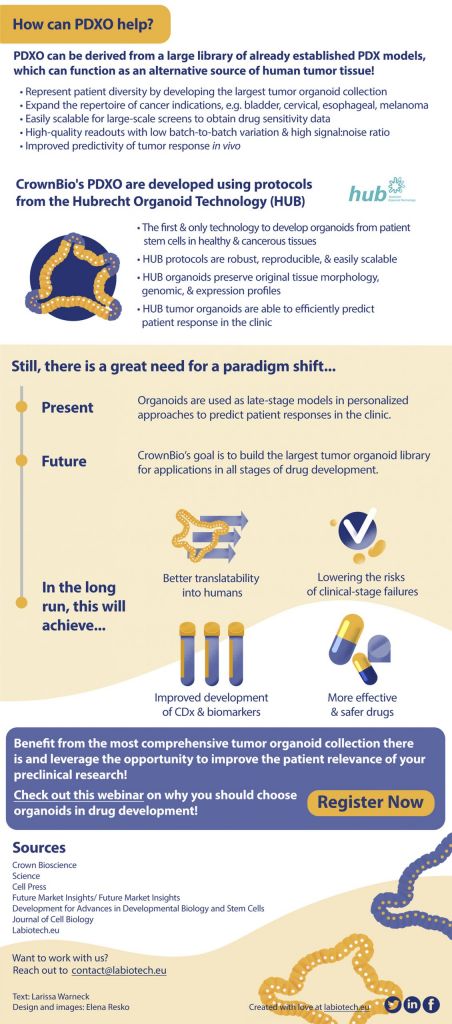Also known as ‘mini-organs in a dish’, organoids are defined as 3D structures that mimic the key functions of the corresponding organ or tissue in vivo. They are an exciting new alternative to the traditional tools of preclinical drug development, such as cell lines and animal models.
In preclinical drug development, organoids fulfill many functions in the investigation of new drugs, including characterizing new compounds and establishing their safety and efficacy before they enter the clinic. Organoids are seen especially promising in cancer research.
As failure rates are still higher for new anticancer agents than for other disease areas, there is a great need for preclinical models that allow a better translation into humans. We therefore proudly present: tumor organoids.
In our latest infographic, we explore the potential of organoids and how they are slowly revolutionizing drug development. We discover what types exist and what they can be used for; how they compare to traditional 2D and 3D in vitro models; and how CrownBio is building the largest tumor organoid library to date.
You can download a free version of the infographic here!
Using their extensive library of over 3,000 patient-derived xenograft (PDX) models, CrownBio is developing a large tumor organoid library to boost preclinical as well as clinical drug development.
The company’s PDXO are developed in much the same way as PDO. While both types are patient-derived, in PDXO, the patient tumor tissue is expanded in the PDX model. This also addresses the patient tissue shortage that exists in preclinical cancer research.
In the future, CrownBio wants to build the largest tumor organoid library, which can be applied in all stages of drug development. With time, this will achieve a better translatability of preclinical research into humans; lower the risk of clinical-stage failures; shorten timelines; and boost the development of more effective and safer drugs.
Benefit from the most comprehensive tumor organoid collection there is and leverage the opportunity to improve the patient-relevance of your preclinical research! Check out CrownBio’s webinar on why you should choose organoids in drug development!
Design: Elena Resko
Text: Larissa Warneck, Science Journalist at Labiotech.eu









